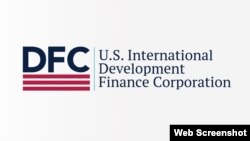A U.S. development agency proposed lifting restrictions that bar the financing of advanced nuclear energy projects abroad, a move the Trump administration hopes will help the industry compete with state-owned companies in China and Russia.
The U.S. International Development Finance Corp., or DFC, late Wednesday opened a 30-day comment period on the proposal. The idea was included in the Trump administration's Nuclear Fuel Working Group report, released in April, on ways to modernize nuclear energy policy.
The DFC said the proposed change could help deliver secure power to developing countries and that new U.S. technologies, such as small modular reactors and microreactors, may be well-suited for them.
The DFC, which replaced the Overseas Private Investment Corp., launched in January with a $60 billion budget. It is seen by analysts as an attempt by Washington to provide an alternative to Beijing’s sweeping Belt and Road Initiative, which sponsors large-scale infrastructure, like nuclear projects, in developing countries.
Russia's state-owned nuclear energy company, Rosatom, is also looking to sell nuclear technology.
Ed Lyman, a nuclear power expert at the Union of Concerned Scientists, said it is "utterly irresponsible for the Trump administration to promote the export of unproven and potentially dangerous nuclear technologies to the developing world." He said Washington should first work with countries to create independent nuclear regulators.
The change could "offer an alternative to the financing of authoritarian regimes while advancing U.S. nonproliferation safeguards," it said.
Business groups said axing the restrictions would allow the United States to help developing countries power electricity grids, desalination plants and other uses.
Washington "must ensure that our companies, our innovators and our clean-energy technologies have the best possible chance to compete internationally," said Rich Powell, head of ClearPath, a nonprofit supporting nuclear energy development to fight climate change.
Advanced nuclear power is expected to be less expensive than traditional nuclear stations costing tens of billions of dollars. But nonproliferation experts caution that the plants and their supply chains could become targets of attack.





